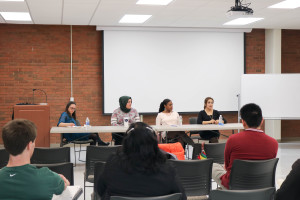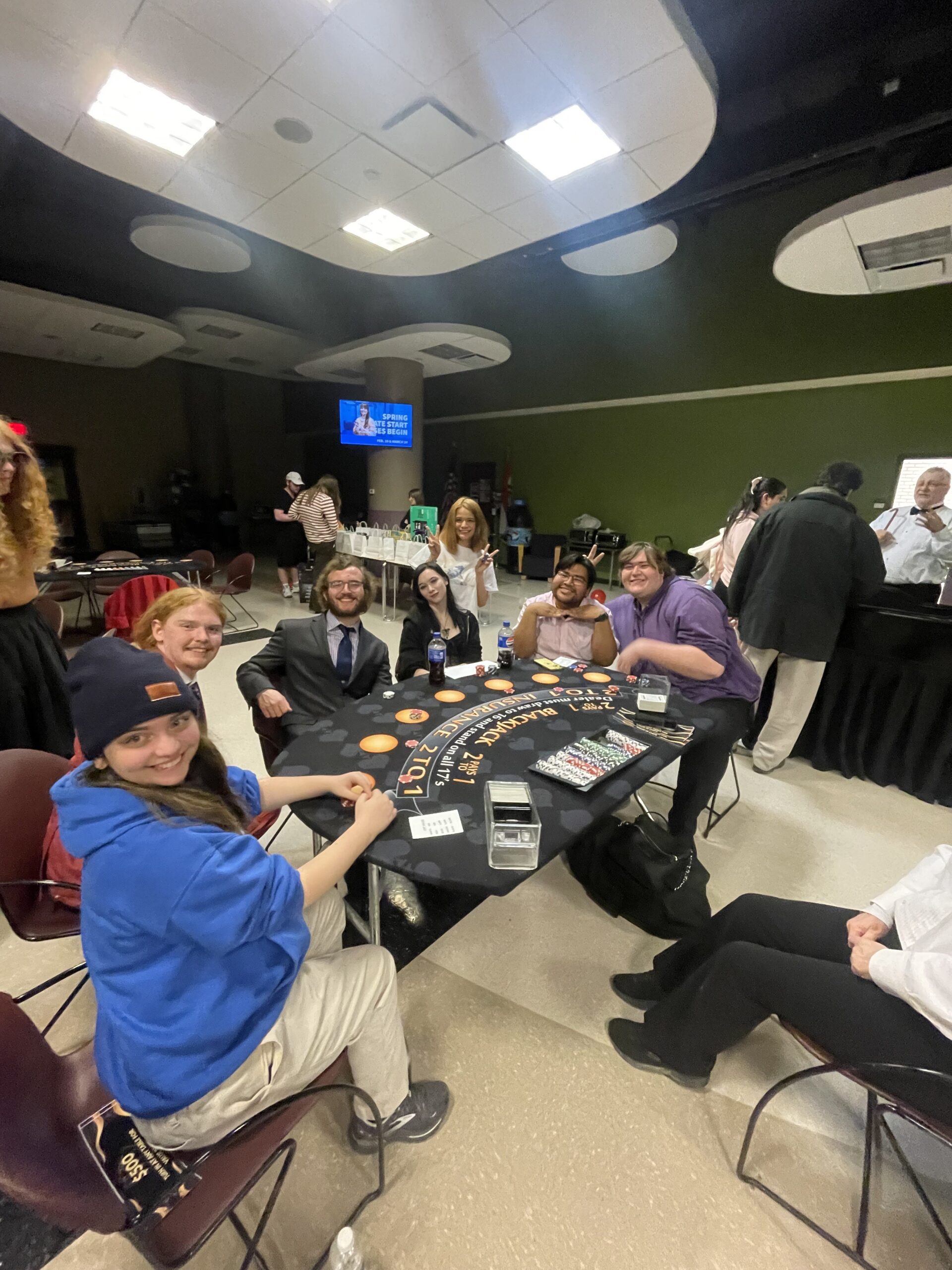For most new Americans, culture shock is the greatest obstacle in their new homes
BY: Monica Obradovic
Staff Writer
On March 26, the Service Works Club hosted a panel of immigrant women to share their stories in honor of  Women’s History Month. Three women, each from different countries, shared their thoughts on what it means to be immigrant women in America.
Women’s History Month. Three women, each from different countries, shared their thoughts on what it means to be immigrant women in America.
Claire Martin, now a United States citizen, immigrated from Haiti to New York in 1994 due to political turmoil and natural disasters. Despite great academic success, Martin struggled with staying in the states with her tourist visa and eventually married an old family friend to become a citizen.
“He came legally. He made a bargain with me and my siblings. ‘How about I marry Claire, and in exchange I can live with you guys?’ So we got married,” said Martin.
For most new Americans, culture shock is the greatest obstacle in their new homes. For Martin, however; the biggest struggle was maintaining her citizenship while living in an abusive relationship with her new husband.
“The day before we got married, he abused me, raped me, beat me up. The next day we went to city hall and got married,” said Martin.
Martin continued her marriage and endured abuse for the next five years until she connected with her psychology professor who introduced her to other options to maintain her citizenship.
“He told me a law that had just passed the year I came here called, ‘The Violence Against Women Act,’ [a law] that is there to protect women in abusive marriages, so they can leave the marriage and still stay legal,” said Martin.
Martin divorced her husband. With newfound freedom, she said, she discovered who she was. Martin now works at UMSL as a crisis counselor, and holds multiple masters degrees.
Like Martin, STLCC student Esma Karakas faced citizenship obstacles not only politically, but personally. In July 2016, war ravished Turkey and Karakas’ passport was cancelled. She was forced to apply for political asylum.
“I had this idea of my identity, that I was Turkish and that I belonged to that country and my family and community was Turkish. My country didn’t want me back there and I had to stay here…I needed help,” said Karakas.
A catholic organization helped Karakas with her situation and soon the young student found her place in a new home. Now a three-year resident of the United States, she hopes to transfer to a four-year college and then law school to study human rights.
Karakas came to America to learn English and have fun. Martin immigrated for education. Thirty-nine-year-old Iraqi immigrant, Aseel Thamer, simply came for her life.
As an Iraqi citizen, Thamer didn’t know what life would be like outside of war.
“I never dreamed about America,” Thamer said. “I didn’t have internet back home. I didn’t have a TV to look at what’s America.”
Thamer left her home country in 2006 to protect her family. During the war, her husband helped Americans as an interpreter, an extremely risky business that led to their abrupt departure from their home.
“We had to get out right away. One day one of his old friends came to our house and said they’re going to kill you and your family tonight. We had to leave everything. I had a four-month-old baby and a two-year-old baby,” said Thamer.
Thamer and her family moved from Iraq to Jordan and then to Syria, but still lived in constant fear until they arrived in the United States.
Luckily, Thamer, Martin, and Karakas have found comfort in the United States. All three women shared their roads to new identities as Americans and desire to spread hope to those with similar stories.
“What I’d say to immigrants is don’t take failure as a reason to give up,” Martin said. “Use it as a learning experience, and move past it.”










